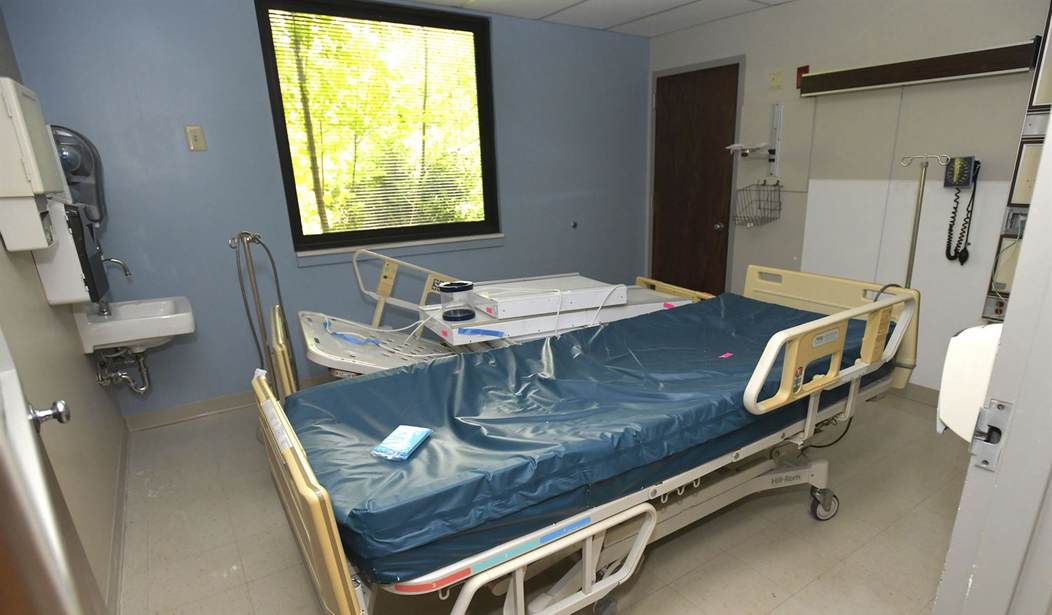What would you do to save your local hospital?
That question is on the mind of many lawmakers in states struggling with whether or not to expand Medicaid to able-bodied adults under ObamaCare. Advocates of expansion have time and again pitched expansion as a way to save struggling, rural hospitals across the nation. More recently, activists are pitching Medicaid expansion as a response to the COVID-19 outbreak. As more hospitals find themselves in financial trouble, expanding Medicaid is promised to be the cure-all: not only will it save hospitals from closing, but it’ll create jobs too (or so advocates say). This exact conversation has played out recently in states like Kansas, where state legislators backed away from a so-called “compromise” expansion proposal.
But reality has a tendency to get in the way of big promises. The latest data actually show that expanding Medicaid has not materially improved the hospital’s financial health and that these promises of hospital jobs have gone unfulfilled. In many instances, expansion states have actually lost thousands of hospital jobs. And non-expansion states have seen hospital jobs grow at a faster rate compared to expansion states.
Think about it: expansion shifts adults off of private insurance and onto Medicaid, thereby causing hospitals to be faced with more patients at a much lower reimbursement rate—a troubling reality. In fact, a six-year study of more than 1,700 hospitals found that expansion states had higher Medicaid payment shortfalls compared to their non-expansion counterparts.
This is precisely what’s playing out in rural areas like my home state of Vermont, one of the first adopters of Medicaid expansion. Vermont added thousands of able-bodied adults to Medicaid via ObamaCare starting back in 2014. Now, roughly one in every three Vermonters is on Medicaid. Since that time, hospital finances have spiraled into the red.
The in-state fiscal year 2015—the first full year of expansion—just three hospitals reported operating losses. Now, 50 percent of Vermont’s hospital is facing severe operating losses, as the hospital system’s total operating margin has plummeted by 81 percent (or roughly $89 million) since that time. Today, growth in Vermont’s hospital operating expenses outpaces growth in revenue by millions of dollars. This is a recipe for disaster.
Recommended
The hospitals themselves understand what’s happening, as “low reimbursement rates from Medicaid and Medicare played into the hospitals’ economic challenges.” This is precisely the case with Central Vermont Medical Center, the primary hospital in my old region, as its poor financial situation is attributable to “a higher percentage of Medicaid patients and the burden of providing more free care.” One Vermont hospital even had to file for bankruptcy due to its financial woes.
These fiscal challenges have spread to state government as well, with the declining federal match for Medicaid expansion negatively impacting the state’s budget by roughly $4 million, and contributing to the nearly $100 million budget gap that legislators face this year.
At the same time, unfortunately, the number of patients waiting for care has risen: the quantity of patients on Vermont’s “Choices for Care” moderate needs Medicaid waiting list has more than doubled, rising from 402 before expansion to 880 more recently. Put simply, as Vermont has expanded Medicaid to able-bodied adults, both hospitals and the most vulnerable individuals in need of care have suffered. It’s no surprise that many expansion states have turned to commonsense Medicaid work requirements and enrollment freezes to counteract the unsustainable trends that expansion has sparked.
I grew up in Vermont and truly love the state. But when I lived there, graduated from college there, and eventually worked in the Vermont state government, I witnessed expansion contribute to harmful outcomes for individuals and hospitals firsthand. Here’s the bottom line: despite the assurances of new jobs and better finances, Medicaid expansion has proven not to be a silver bullet. States contemplating expanding Medicaid—especially as a measure to cope with the current COVID-19 crisis—should not be drawn in by generous promises that have repeatedly failed to materialize. Instead, lawmakers should be cautious, and look to states like Vermont as evidence of what not to do to save your hospitals.
Hayden Dublois is a Research Analyst at the Foundation for Government Accountability.

























Join the conversation as a VIP Member